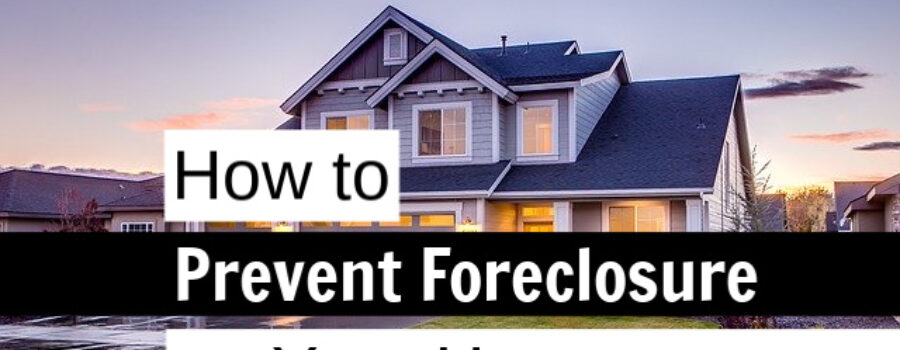I spoke with David M. Offen, who is a leading Philadelphia foreclosure attorney, about how people can prevent foreclosure on their homes. He has, over his 20-plus years of experience, helped hundreds of clients save their home from foreclosure in Philadelphia.
How Does Mortgage Foreclosure Work?
If you are struggling to pay your mortgage and other bills, you are reading this article to find out how you can prevent foreclosure.
Either you’ve fallen behind on your mortgage, you’ve received an Intent to Foreclose notice from your mortgage lender, or foreclosure proceedings have already commenced. Here is what happens in Pennsylvania, a judicial foreclosure state. Other states have similar processes, and still, others have different processes altogether. Consult with a local foreclosure attorney if you need to know how foreclosure works specifically in your area.
The Foreclosure Process
In Pennsylvania, a mortgage lender must mail a 30-day Notice of Intent to Foreclose to the borrower before commencing a foreclosure case, first-class mail, to you at your last known address and if you are not living in the subject property, the subject property itself.
How Many Payments Must I Miss Before the Lender Forecloses?
In Pennsylvania, the mortgage lender must wait 120 days after the due date of your first missed payment before filing a foreclosure suit against you and the subject property. Again, this varies by state.
What is a Foreclosure Complaint?
After the statutory periods and notices, the mortgage lender files a complaint with the county where the subject property is located. You will then be served the complaint. After that you have a small window of time to “answer” the complaint with any defenses you have.
It is important to file an answer to the foreclosure complaint. If you do not, the foreclosure action is deemed uncontested and the lender wins by default. This fast-tracks the process to sheriff sale.
How Do You Prevent Foreclosure Suit?
Again, the law varies among states. In all states, if you can bring your account current including late fees and attorney fees, you can stop the foreclosure suit and save your home from foreclosure.
Few homeowners have that kind of cash though. So what one does to stop the foreclosure suit will depend upon whether you want to keep the property, how far behind you are, and what your financial situation is going forward.
Lenders typically would prefer to have borrower’s money than their home so negotiation is possible, in the following ways:
- Reinstate the Mortgage – if it is possible for you to bring your account current, this will reinstate the mortgage as if you never fell behind in the first place.
- Forbearance – this is where the lender reduces your monthly payment or suspends the monthly payment altogether for a few months.
- Modify the mortgage – this is where your lender either tacks the arrearage onto the back end of your loan and increases the term, reduces the interest rate, or some combination of the two.
But if you simply cannot afford to keep your home, you can stop or prevent a foreclosure suit by working with your lender to effect:
- Short sale of your home – this is when your lender agrees that your home may be sold for less than what you owe.
- Deed in Lieu of Foreclosure – this is when you transfer the deed to your lender and your lender forgives the loan.
Can I Prevent Foreclosure by Filing Bankruptcy?
Filing a bankruptcy petition will certainly delay the foreclosure process. The automatic stay will “stay” or stop any court proceeding against you. Your lender will have to file a motion called a “Motion for Relief from the Automatic Stay”. This motion allows the foreclosure proceeding to continue.
If you have steady income, you may be able to file a Chapter 13 petition. With Chapter 13 you craft a 3- or 5-year plan to repay your mortgage arrears. You would have to pay your monthly mortgage payment as well, directly to the lender outside your plan.
If you cannot afford to do this, you might consider filing a Chapter 7 petition. While there is no process in place in Chapter 7 for you to repay mortgage arrears, there is an opportunity to:
- Delay the foreclosure process due to the automatic stay, giving you more time to save funds;
- Negotiate with the lender to modify the mortgage;
- Legally “surrender” your property and be discharged of liability on the mortgage.
Either Chapter 7 or Chapter 13 will get your other unsecured debt, like credit card balances and medical debt, discharged. This will free up some of your income to apply to your mortgage. You might consider this in weighing your options of surrendering or keeping your home.

About the Author:
Veronica Baxter is a legal assistant and blogger living and working in the great city of Philadelphia, PA. She works frequently with David M. Offen, Esq., a noted Philadelphia bankruptcy attorney who has helped hundreds of clients deal with foreclosure.
If you’ve already foreclosed on your home, and you’re back on your feet, a portfolio loan for your new home may be the solution for you.
What questions do you have?
I invite you to reach out.
If you’re seeking further guidance on how to prevent foreclosure you’re welcome to reach out below. We’re also glad to give guidance on what mortgage options are available after foreclosure is complete.
If we cannot help, we should be able to point you in the right direction at the very least.










What questions do you have?